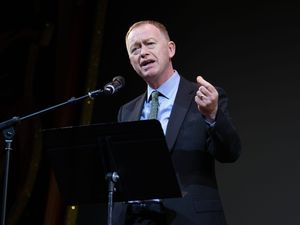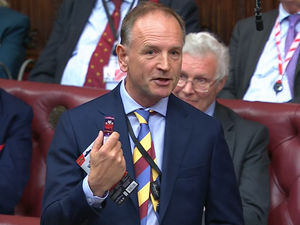Waspi women criticise ‘bizarre and unjustified’ ruling out of compensation
The Government said a blanket compensation scheme for Waspi women, which could cost taxpayers up to £10.5 billion, cannot be justified.
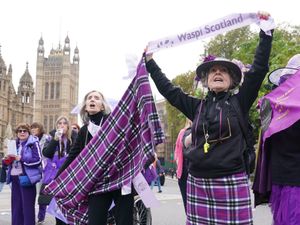
Campaigners have branded a Government decision not to compensate women affected by the way changes to the state pension age were communicated “bizarre and totally unjustified”.
The Government is also facing a barrage of criticism from MPs over the decision, some of which is coming from within its own party.
One former pensions minister said the handling of the issue “sets an extremely worrying precedent”.
Work and Pensions Secretary Liz Kendall said the Government does not believe paying a flat rate to women at a cost of up to £10.5 billion would be a fair or proportionate use of taxpayers’ money.
Angela Madden, chairwoman of Women Against State Pension Inequality (Waspi) said: “The Government has today made an unprecedented political choice to ignore the clear recommendations of an independent watchdog which ordered ministers urgently to compensate Waspi women nine months ago.
“This is a bizarre and totally unjustified move which will leave everyone asking what the point of an ombudsman is if ministers can simply ignore their decisions.
“It feels like a decision that would make the likes of Boris Johnson and Donald Trump blush.”
She described an action plan to avoid such mistakes in future as “an insult both to the women” and to the investigation previously carried out by the Parliamentary and Health Service Ombudsman (PSHO) into how changes to the state pension age were communicated.
Ms Madden said: “An overwhelming majority of MPs back Waspi’s calls for fair compensation and all options remain on the table. Parliament must now seek an alternative mechanism to force this issue on to the order paper so justice can be done.”
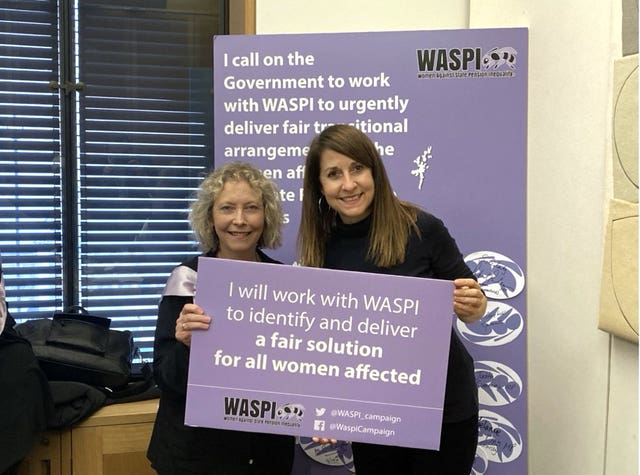
The Government said it has accepted the Ombudsman’s finding of maladministration and has apologised for there being a 28-month delay in writing to 1950s-born women.
But it said evidence showed only one in four people remember receiving and reading letters that they were not expecting and that the great majority of 1950s-born women did know that the state pension age was changing.
The Government said a blanket compensation scheme, which could cost taxpayers up to £10.5 billion, cannot be justified.
It would also be impossible to deliver a tailored compensation scheme taking into account individual circumstances that is fair, value for money and feasible, it added.
In a statement, Ms Kendall said: “These two facts: that most women knew the state pension age was increasing and that letters aren’t as significant as the Ombudsman says, as well as other reasons, have informed our conclusion that there should be no scheme of financial compensation to 1950s-born women, in response to the Ombudsman’s report.”
She added: “The alternative put forward in the report is for a flat rate compensation scheme, at level four of the Ombudsman’s scale of injustice, this would provide £1,000 to £2,950 per person at a total cost of between £3.5 billion and 10.5 billion.
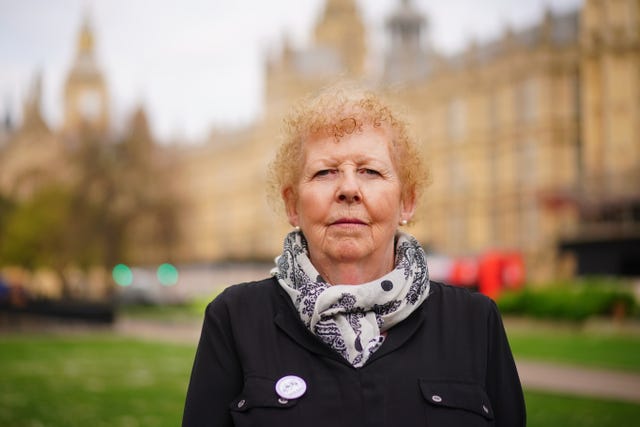
“Given the vast majority of women knew the state pension age was increasing, the Government does not believe paying a flat rate to all women at a cost of up to £10.5 billion would be a fair or proportionate use of taxpayers’ money.”
There were shouts of “shame” when Ms Kendall made the announcement in the Commons.
Labour MP Brian Leishman said he was “appalled” at the decision to not provide financial compensation to the Waspi women.
The MP for Alloa and Grangemouth told the Commons: “Firstly I’d like to say I’m appalled at this announcement and I have campaigned with Waspi women, as have many parliamentary colleagues, and this is an incredible let down.
“Waspi women, in my opinion, certainly do not need words of disappointment and they certainly do not need hollow statements. What they need is justice. Does the Secretary of State not agree with that?”
Ms Kendall said: “I believe that this is a difficult decision but the right and fair one.”
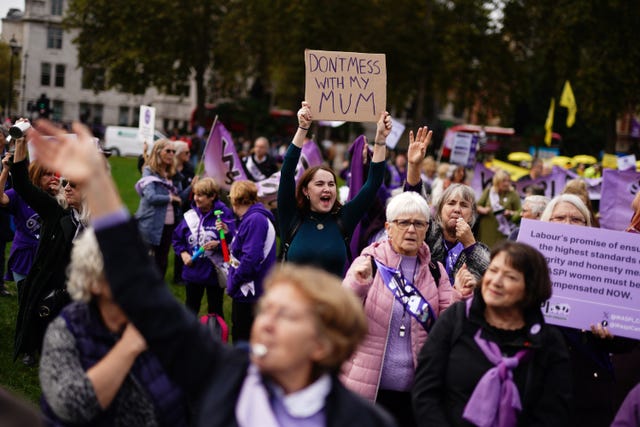
She offered to meet Mr Leishman to discuss the matter further.
Ms Kendall has previously been seen with campaigners at a Parliamentary event holding up a sign saying: “I will work with Waspi to identify and deliver a fair solution for all women affected.”
Independent MP Rebecca Long Bailey, who co-chairs the all-party parliamentary group (APPG) on State Pension Inequality for Women, said the Government’s apology was “not enough” for Waspi women.
Ms Long Bailey said the APPG found “huge numbers” of women suffered “significant financial hardship”, telling the Commons “(Ms Kendall) must realise that an apology is welcome but it’s not enough for them and, frankly, it’s unprecedented for a government to agree with the findings of an ombudsman on the one hand but to refuse to initiate redress when clear injustice has occurred.
“So to those women who have lost everything, what will (Ms Kendall) say to reassure them today?
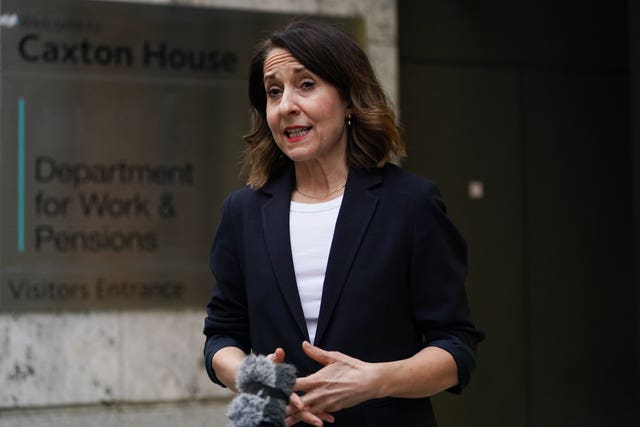
Ms Kendall replied: “I understand the concerns (Ms Long-Bailey) raises but I just reiterate the finding from the Ombudsman’s report that there was no direct financial loss and we agree that those letters should have been sent out earlier, we will learn all the lessons in order to put that right.”
Speaking later to journalists, Ms Kendall said “real and concrete actions” were coming out of the report.
She said: “We want to work with the Ombudsman to develop a detailed action plan to make sure those sorts of delays never happen again.
“We have committed to ensuring that there is sufficient notice about any changes to the state pension age so people can properly plan for their retirement.”
Sir Steve Webb, a former Liberal Democrat pensions minister who is now a partner at pension consultants LCP (Lane Clark & Peacock) said: “The Government’s handling of this issue sets an extremely worrying precedent.
“If it is acceptable for a department to completely reject the findings of a report by the independent Parliamentary Ombudsman, this strikes a blow at the heart of the whole process.
“There is a risk that governments will now feel emboldened to ‘pick and choose’ when faced with a critical Ombudsman report, effectively setting themselves up as judge and jury.
“Even if the Government felt it could not afford to implement the recommendations in full, there were many options which would have offered some redress to those most affected.
“Outright rejection of the Ombudsman’s report raises much wider issues than compensation over pension age changes, and MPs should not take this decision lying down.”
Liberal Democrat work and pensions spokesman Steve Darling said: “Today is a day of shame for the Government.
“The new Government has turned its back on millions of pension-age women who were wronged through no fault of their own, ignoring the independent Ombudsman’s recommendations, and that is frankly disgraceful.”
Waspi campaign director Jane Cowley told Times Radio she is “absolutely incensed” by the Government’s decision.
She told Jane Garvey the organisation will be calling on the “massive amount” of support it has in Parliament.
Caroline Abrahams, charity director at Age UK, said: “Everyone understands that the public finances are under acute pressure, but the Government should not rub salt in the wounds of those impacted by suggesting there is no case for compensation.
“The fact that many of the women affected will also be coping with the loss of their winter fuel payment this year will intensify their sense of injustice.”
Baroness Altmann, another former pensions minister, said: “I am a Waspi woman and would not want taxpayers to compensate me personally because I knew about it.
“However, I do believe there is a strong moral case for the worst affected women, who have suffered serious hardship, to claim on a case-by-case basis.”
She continued: “The state pension is crucial for many of the women born in the 1950s. They often had little chance to build private pensions and if they worked part-time after having children they were not even allowed to join their employer pension scheme.
“By not receiving the state pension they were relying on, many were plunged into poverty.”
Unison head of equality Josie Irwin said the decision “is a cruel blow to a generation of women”, adding: “The Government must find a way to resolve this desperately unfair situation. Refusing to pay compensation is not the answer.”
Danni Hewson, head of financial analysis at AJ Bell, said: “The introduction of automatic enrolment means more people have workplace pensions, so fewer are relying solely on the state pension alone to fund their retirement.
“But there is still a huge gender pension gap.”
Earlier, Sir Keir Starmer said he understood the concerns of the Waspi women but the Government had to protect the taxpayer.
The Prime Minister told broadcasters: “I do understand, of course, the concern of the Waspi women.
“But also I have to take into account whether it’s right at the moment to impose a further burden on the taxpayer, which is what it would be.”


